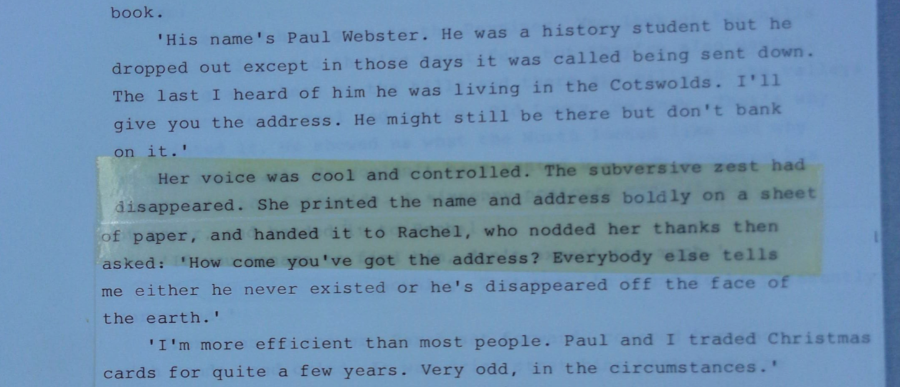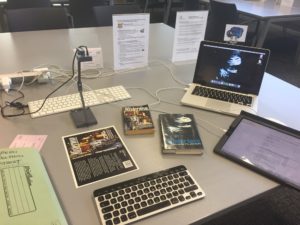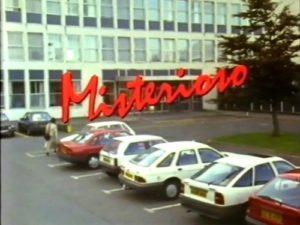I like stories where I start off looking pretty good and I’m okay with how they then often take a turn and I don’t appear quite so great. If I could just stop myself telling you the third part where I am invariably exposed as an utter idiot, that would be okay with me.
This isn’t that type of story, not quite yet. Give me a minute. First I have to tell you a very quick thing because I want to tell myself too and I have no earthly clue where else I can. It’s this. In a hundred years, when all of the analysis of the Trump Administration is finally over but researchers can’t shake the habit, some one sole person with half an hour to spare and a sandwich to chew, will open the 2020 US House of Representatives report into technology.
And as they skim it, wondering where they left their coffee, their eyes will completely miss the fact that I am cited in there.
What value this citation has, I don’t know. But now when relatives give me the line about how the lockdown must’ve been great for me since I say I’m a “writer”, and when these relatives go on to the inevitable “so what did you do with your time?”, I have an answer. “Wrote a play, wrote a book, influenced the course of American political history for the next century. What about you? Did you get that shed painted?”
Oh, come on, you’ve got identical relatives, let me have this.
And what I really want to talk to you about was hidden in there. The “wrote a book” part. It’s not as much of an exaggeration as the US politics part, but unfortunately it is an exaggeration and I want to be open about this.
I count things. This may be very male of me, but I like that later today I’ll read my 458th script of the year, and that a few minutes ago I did my daily French lesson in Duolingo for the 508th consecutive day. Counting like this is useful, I promise you, but only when the numbers start to look decent. I remember back on January 1st when I made a note that I’d read one entire script so far this year, it didn’t feel that hot.
‘Course, there have been bigger things to worry about this year. Pandemics: 1. So small numbers can still be huge.
But counting like this does a lot of things for me, most of them to do with how they somehow keep me going on to the next bit. I’ve done 508 days, you know I’ll do 509. Just as an aside, by the way, every time Duolingo says I’ve hit whatever the day count is, I am back on day 1, which was late night in a hotel in Hull, during the most intense research job I’ve ever had. It’s a nice memory to have every day.
That research became a play that I am still supremely proud of, 105 days since I delivered it. But here’s the thing I seem to be trying to simultaneously tell you and avoid telling you.
The reason I know I delivered that script 105 days ago is that right after I emailed it over, I vowed to spend one hour every day writing a novel. And I managed it for 89 days. Call it 90: I allowed myself a holiday of a few days since I’d reached 97,000 words, and I came back to do one more day after that.
But 90 is a little less than 105. This is the quality of information you get from me. Except, no, it turns out that 90 is the most enormously less than 105 than it is possible to get. The gap between 89 and 105 is exactly the same. The gap between, say, 21 days and 105 is precisely, to the minute, as much of a chasm. It is harder to go back to an hour every day after you’ve stopped for 15 days than it ever was to do each day one after the other.
Except.
The reason I am telling you this now is that I think saying it to you, specifically you and specifically now, will make me get back on the wagon. And then there is also this.
Last night, still feeling wiped out from having been sick last weekend, I read script number 457 –– Jack Rosenthal’s “Well, Thank You, Thursday” –– and went to a Suzanne Vega concert. In my living room. It was streamed and the proceeds are going to all of the venues across the US and Europe that she would have played in during a tour that the pandemic has cancelled.
I was streaming it from my iPhone to my TV set, and either from a need to just be in the moment or because I knew I’d knock the streaming off if I fiddled with the phone, I didn’t check any messages for about the concert’s about 70 minutes. No alerts, no notifications, no emails, and I didn’t even know the time until afterwards. I got to be in a New York night club for a small little concert and just be there.
Yet I thought of something for the book.
During “Ludlow Street”, if we’re really counting. One of my favourites: it’s a track from Suzanne Vega’s Beauty & Crime album.
Anyway, faintly peculiarly, what I thought of was something that I realise is already in the novel. Two of my characters have grown to have these different perspectives on the same thing and what I realised last night is why. It’s the smallest insight, it is what I have already written, and yet it’s so important that if the US House of Representatives asks me about it, I will claim that it was the entire reason for the novel.
You’ll know different, but you’re you, I can tell you this. And I want to tell you because it’s you, but also because I need your help to get me back on this hour-every-day lark –– and I hope that your helping me will help you start, continue or finish whatever you’re working on. Just doing a bit every day gets you there.
Count on it.

 Shush, we’re in archive. It’s the
Shush, we’re in archive. It’s the 